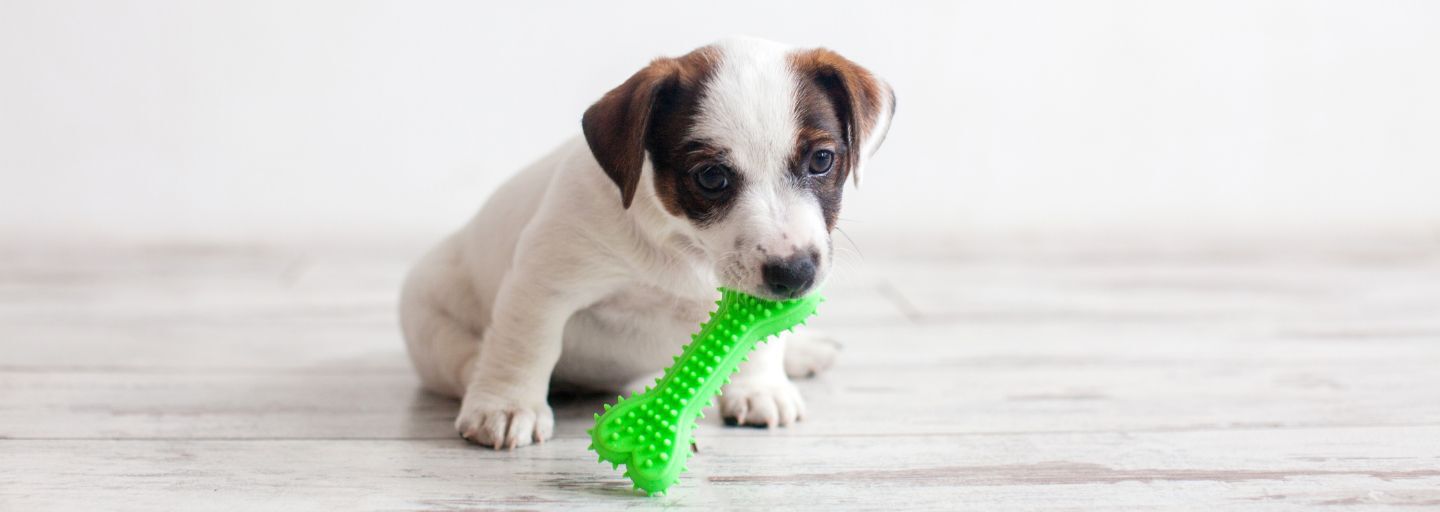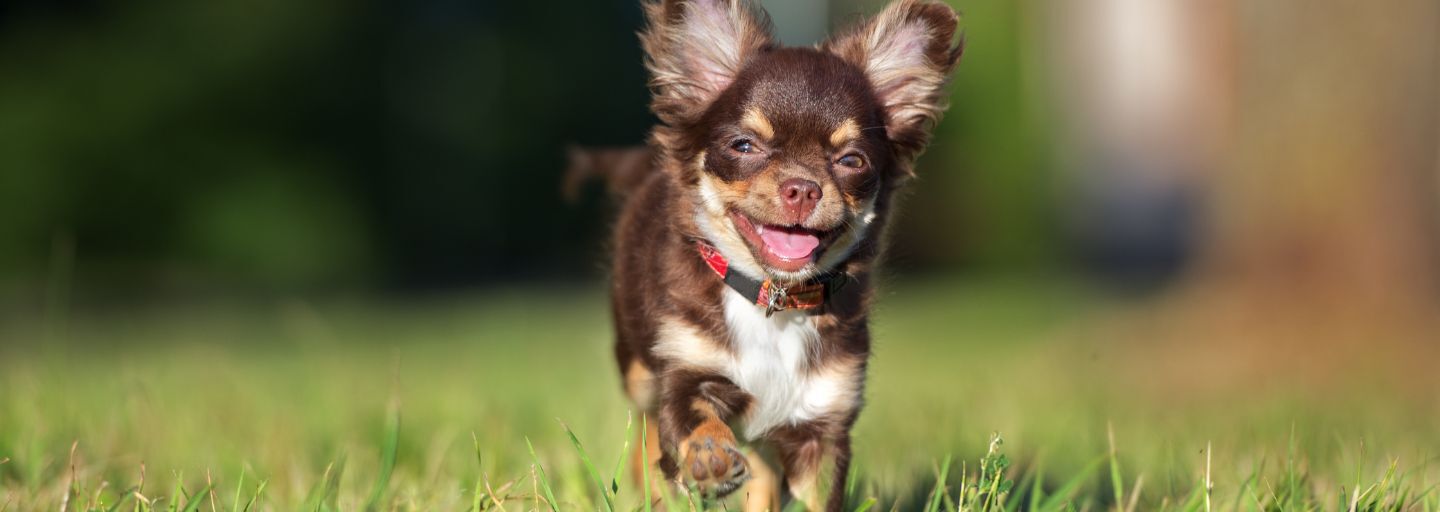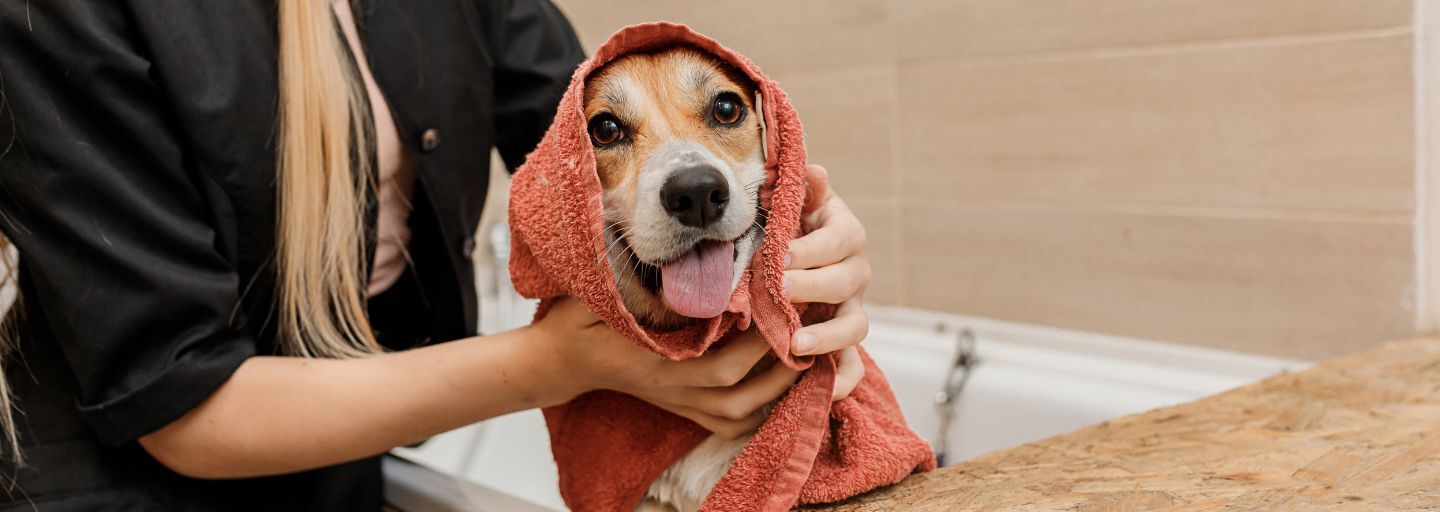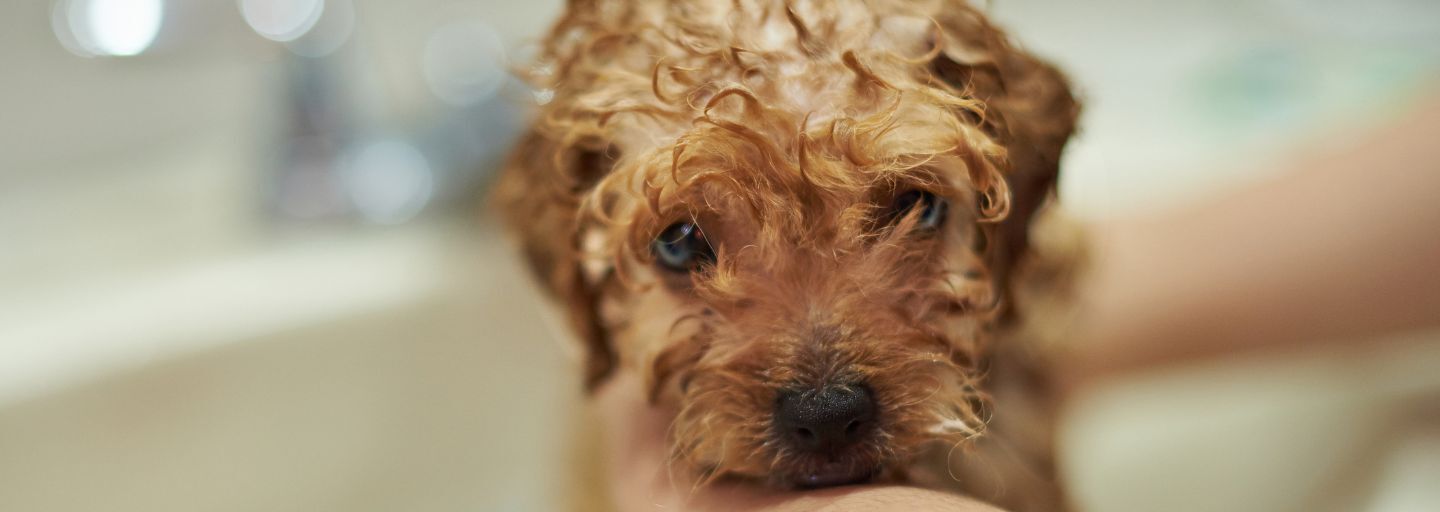Puppies have very sharp teeth, and they know how to use them. If you’ve been on the receiving end of a set of puppy teeth, you’ll know how much they can hurt. Of course, your puppy doesn’t intentionally set out to hurt you. What may start as a game can quickly become overexcited playtime leading to some painful interactions. Help keep playtime with your puppy appropriate (in terms of play and duration), fun and teach them to play safely with these handy tips.
Is rough-housing ever, okay?
Many owners enjoy rough-housing or wrestling, which describes playing in an energetic and very physical manner with their puppy. This behaviour often becomes a lot less fun as your puppy's very sharp teeth come in and will most likely cause hyperarousal issues if done too often or for too long. Creating high levels of arousal in a dog of any age may result in your puppy or dog struggling to relax afterwards and showing undesirable behaviours because of the level of excitement, such as biting, pulling at clothes, jumping, and barking. It is also dangerous for those whose skin may be more fragile, like the elderly or young children.
It’s fine to play energetically with your dog and for your puppy to use their teeth, but this type of play must be directed on to appropriate play objects. It’s best to play with your puppy in a manner that’s less likely to hurt, right from the beginning. Have a variety of strong and sturdy toys on hand when you start a play session. When your pup goes to use their teeth, push a toy into their mouth. We like to recommend toys bigger than their little puppy heads to ensure that no accidents of teeth on human hands can occur.
Never punish
Punishing your puppy for a natural puppy development behaviour is inappropriate and may lead to trust and bond building issues between you and your puppy. Should you find yourself becoming frustrated or have accidentally overexcited your puppy, it is best to remove yourself from your puppy, place them in a safe puppy area (such as their play pen or crate) and give them a long lasting food/treat item to chew on to help them settle back down.
Praise them
When your puppy plays well with you, remember to praise them. This will ensure they’re encouraged to play in a manner where everyone has fun.
Training obedience skills can help such as ‘Leave it’ or ‘drop/give’
Teaching your pup and obedience cue like “leave it” or ‘drop/give’ can be useful and teaches them when they can have items in their mouths. These skills are taught at good puppy preschool classes by professional accredited dog trainers. Once you have learnt how to teach the skill to your puppy, you can start to incorporate it into your playful interactions.
What if my puppy bites?
It’s almost inevitable your puppy will find a part of you with their teeth. This is a very normal puppy stage for all puppies and you must help them get through it by providing them (more than you think) appropriate puppy teething items to get you both through this phase. Their puppy teeth MUST come out as they grow and you as their guardian need to support them through it; it's a painful and confusing time for many puppies and using their mouth is an important part of learning. Continue training your puppy to play in an appropriate manner - consistency is important. If your puppy is too rough, seek professional help from an appropriately qualified trainer. Older pups and adult dogs that continue to bite may also need their teeth and mouths examined for any medical issues. Puppy teeth will start to fall out anytime between 4 months and 8 months of age, being replaced almost instantly with their adult teeth which are not as sharp and pointy! Remember during this time your puppy’s gums are painful and inflamed and puppy mouthing and biting may temporarily increase. Ensure that you are ready and have all the appropriate chewing items on hand to help them through this time.



